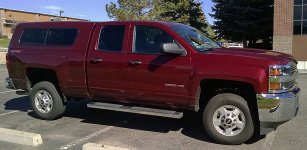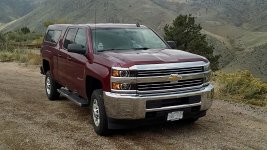The only time the propane is off is when we change tanks.Does anyone have info on how many trailers explode while traveling?
Maybe its more of a hazard than I think,don't know?
Most, if not all of the fire examples I've seen referenced have been motor coaches. I've seen at least one article that spoke to the issue of tire blowouts cutting fuel lines (not propane), causing a fuel spill on hot engine components.
It's probably happened, but I don't recall examples of fires from running the refrigerator in a 5th wheel or travel trailer. But obviously it's safer to tow with tanks closed.
Mac the Fire Guy talks about propane fires, but I haven't heard him distinguish between travel fires on different types of vehicles, or for that matter between towing fires and fires while parked. Maybe it's because he has limited time to tell the story, but to me the examples all seem kind of mixed together.
If you do run the frig while towing, I would say that if you pull up to a fuel pump, it's a good idea to shut off refrigerator so you don't have an open flame in the area of fuel vapors. And while diesel vapor is less of a problem, if there's a gasoline pump anywhere nearby, a gas spill could be a much greater risk.
And with tire blowouts being fairly common, if you have propane lines behind your wheels, the risk would be higher. If I had that configuration, I'd have the tanks closed while towing. And maybe that's why fires on motor coaches may be more likely.


